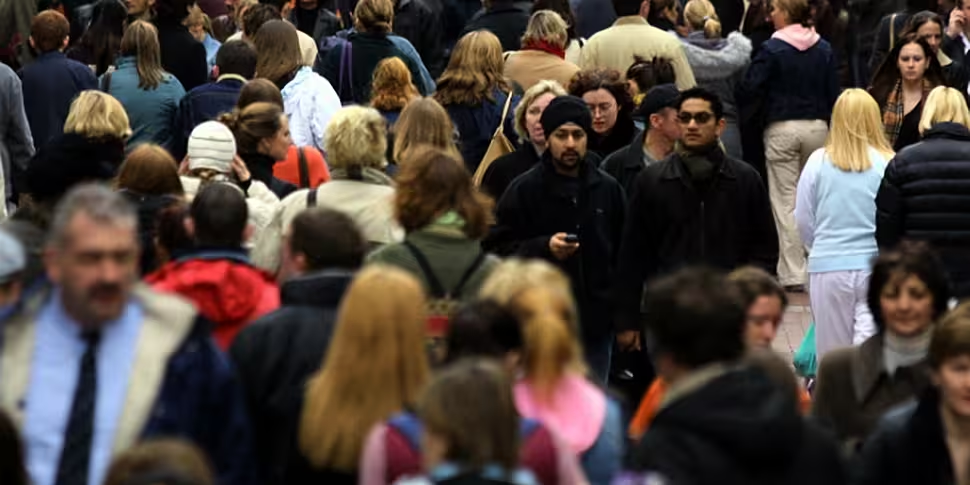Nearly a quarter of Irish households are now jobless according to a new report out today. The research from the National Economic and Social Council (NESC) finds that most people in Ireland have suffered a loss of wealth or income since the economic crash in 2008.
In 38% of Irish households expenditure now exceeds disposable income, while 1/4 are in arrears with bill payments.
The NESC report says that the area worst affected by the economic crisis is the along the outer reaches of the Dublin commuter belt.
The report also outlines the other ways in which people have been impacted in terms of their physical health, family relationships and mental health. In addition, the report highlights the importance of public services, such as education and health, especially for people who are vulnerable.
There has been an increased demand for public services as a result of the crisis, while at the same time public expenditure on service provision has been reduced.
Some key figures from the report are below:
Unemployment
- Unemployment has increased from 5% in 2007 to 14% in 2012
- Young people have especially high unemployment rates – 33% for 15-19 year olds
- 6 out of 10 people who are unemployed are now unemployed for more than one year, with 40% of these men aged 25 to 44
- 22% of all households are now jobless
Income, Consumption and Debt
- Average weekly disposable household income has increased from €843 in 2004-5 to €886 in 2009-10
- Lone parents, people who are unemployed, and people with an illness or disability have the lowest incomes
- Average weekly household expenditure was €811 in 2009/10
- In 38% of households, expenditure exceeds disposable income. Households with lower incomes are much more likely to have spending that exceeds income
- In 2010, 23% of all households were in arrears with at least one bill or loan, with more than half (52%) of households in consistent poverty in such arrears
- Income shocks, such as income reductions which arise from becoming unemployed, ill and unable to work, and/or relationship break up, are an important trigger for becoming over-indebted. This is particularly the case for poorer households, who are less likely to have the resources to cope with such an income shock
Housing
- Mortgage arrears of more than 90 days are up from practically zero in 2004, to 12% for principal private dwellings in December 2012; and to 19% for buy-to-let properties
- People most likely to be in mortgage arrears include those who have lost their job, those who took out mortgages in the 2000s, and younger mortgage holders
- There is an increasing demand for housing with just under 100,000 people on local authority housing waiting lists and nearly 4,000 homeless people
Poverty
- The proportion of those in consistent poverty, that is living on a low income and deprived of basic necessities, increased from 4% in 2008 to 7% in 2011
- The proportion of the population who are deprived (lacking at least 2 basic necessities) increased from 12% in 2007 to 24% in 2011
Public Services
- There has been an increased demand for public services as a result of the economic crisis, while at the same time public expenditure on service provision, in terms of budgets, staffing and programmes, has been reduced
- The overall impact on public services, such as education and health, has been mixed with reductions in some areas of service and increases in others, with the increases tending to be mainly in demand-led services, such as medical cards
Society and Community
- The areas most affected by the economic downturn are the outer reaches of the Dublin ‘commuter belt’, but areas deprived prior to the crisis remain deprived
- The community and voluntary sector, which has been active in implementing pilot projects, complementing public service provision and advocacy, has been severely impacted by the economic crisis
- The economic crisis and subsequent fiscal adjustments have affected some people’s psychological and physical health
- Yet, 86% of the population are satisfied with their life, although this has declined since the onset of the crisis
Impact of Annual Budgets
- The overall impact of the fiscal adjustments implemented through annual budgets, although severe, has been broadly progressive with those on the highest incomes losing the most
- The family types most impacted by budgetary policy between 2009-2013 are earning couples with children. In general, family types dependent on welfare experienced smaller losses.
Helen Johnston is the report author and says some people have been impacted more than others by rising unemployment. She says people are suffering mental distress as a result of unemployment.
} ], { swfPath: '/assets/includes/js/jPlayer', supplied: 'mp3', wmode: 'window' });









